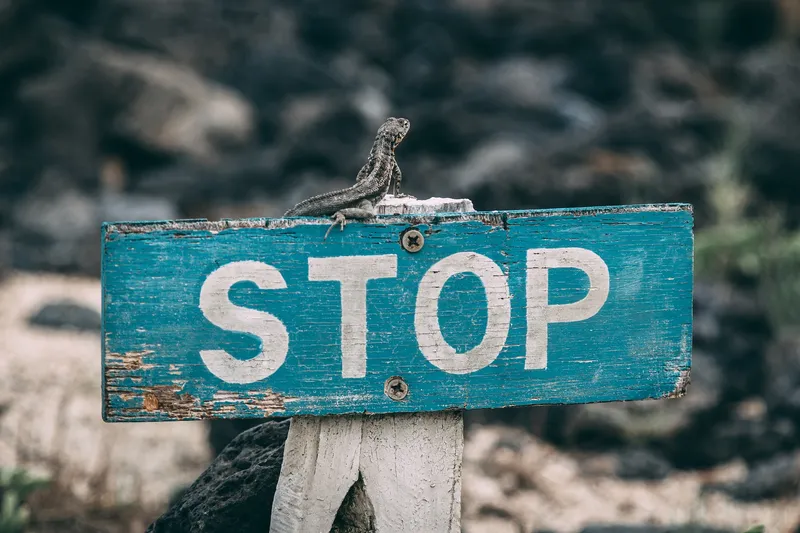Doing Things is Overrated... So Stop (A Bit)
The brain fears a lack of control. Let's lean into that.
5 Dec 2016

You know that bit in the Simpsons intro where Maggie is steering on a pretend wheel to mimic the driving that Marge is doing?
Our brains would genuinely be happier if we could attach a fake steering wheel to “life” and pretend we were controlling everything that happens to us.
The brain fears a lack of control. It only understands one thing: either WE are in control, or the whole rest of the universe gets to decide our fate!
So the brain constructs a narrative where it controls everything - even if it’s only an illusion, a fake steering wheel the brain has made for itself.
At root, this desire for control is positive. It drives us to make changes and improve our lives. But - like pretty much all positive drives - it comes with a flip side: the brain can refuse to let go of the illusion of control, even when we legitimately don’t have any.
It’s impossible to be in control of everything.
Even if we were to put ourselves in a purpose-built bunker with all of our needs taken care of, we would STILL be reliant on the outside world not busting in with bunker bombs.
(And if we invited anyone else to live in our bunker… there goes our perfectly controlled universe. This person would no doubt DARE to have opinions on what tv shows to watch, what time they get to use the shower, and generally irritating us by being independent entities with their own thoughts and feelings and desires. The scoundrels.)
Learning to accept that we can’t fashion the entire universe to our liking is an important step on the Road To Happiness TM.
But why does this matter? Can’t we just control as much as possible?
Controlling as much as possible is a good thing… IF we stick carefully to the true limits of what is possible.
(Another way of looking at this is that we should take as much responsibility over our own lives as possible… and no more.)
There are two flaws with over-controlling our lives. The obvious one is “trying to control something we can’t”. The less-obvious flaw is trying to control something we shouldn’t.
And an over-controlling brain causes more problems when the right answer to a situation is to do nothing.
Our minds don’t like to admit it, but there are many times that “do nothing” is the correct response:
-
Resting/recovering from a depressive episode
-
Waiting for someone else to process something before we can have a productive conversation with them about it
-
Awaiting the result of a decision
-
Baking
In each of these situations (and in many more), taking action will only make our situation worse.
Our brains need to rest (particularly those with mental health issues exacerbated by chemical imbalances - rest is key!). People making decisions are often irritated by being nagged for an answer (sometimes a gentle nudge is the right way, sometimes patience). Opening the oven while baking can screw up the process.
But that desire from our brains to CONTROL ALL THE THINGS means that they wrongly believe that doing nothing means giving up control.
And so we fidget impatiently… and oftentimes end up taking action that we shouldn’t.
When we feel the urge to ACT, perhaps it would help to remember:
Resting is a legitimate positive choice. Doing nothing is a legitimate positive choice.
Not taking action is an action. (There’s a bit of logic in there somewhere.)
Allowing ourselves to believe this frees us up to enjoy resting, to allow space for the rest of the universe to do what it does, and to stop ourselves from making things worse by pushing ourselves or others too hard.
Are you trying to force things? Are you allowing yourself enough space to rest? If not… perhaps try to relax your thinking about action and control.
Taking this action might help you take less action in future.
NOTE: Remember that the opposite of all advice is also true! This post shouldn’t be an excuse for passivity when action is genuinely required. Sadly, we always have to do the work to see if we ought to take action or not. But once we’ve figured out that we should be passive - or should act - we need to allow ourselves to act appropriately… even if the current action is to wait.

Neil Hughes is the author of Walking on Custard & the Meaning of Life, a comical and useful guide to life with anxiety, and The Shop Before Life, a tale about a magical shop which sells human personality traits.
Along with writing more books, he spends his time on standup comedy, speaking about mental health, computer programming, public speaking and everything from music to video games to languages. He struggles to answer the question "so, what do you do?" and is worried that the honest answer is probably "procrastinate."
He would like it if you said hello.